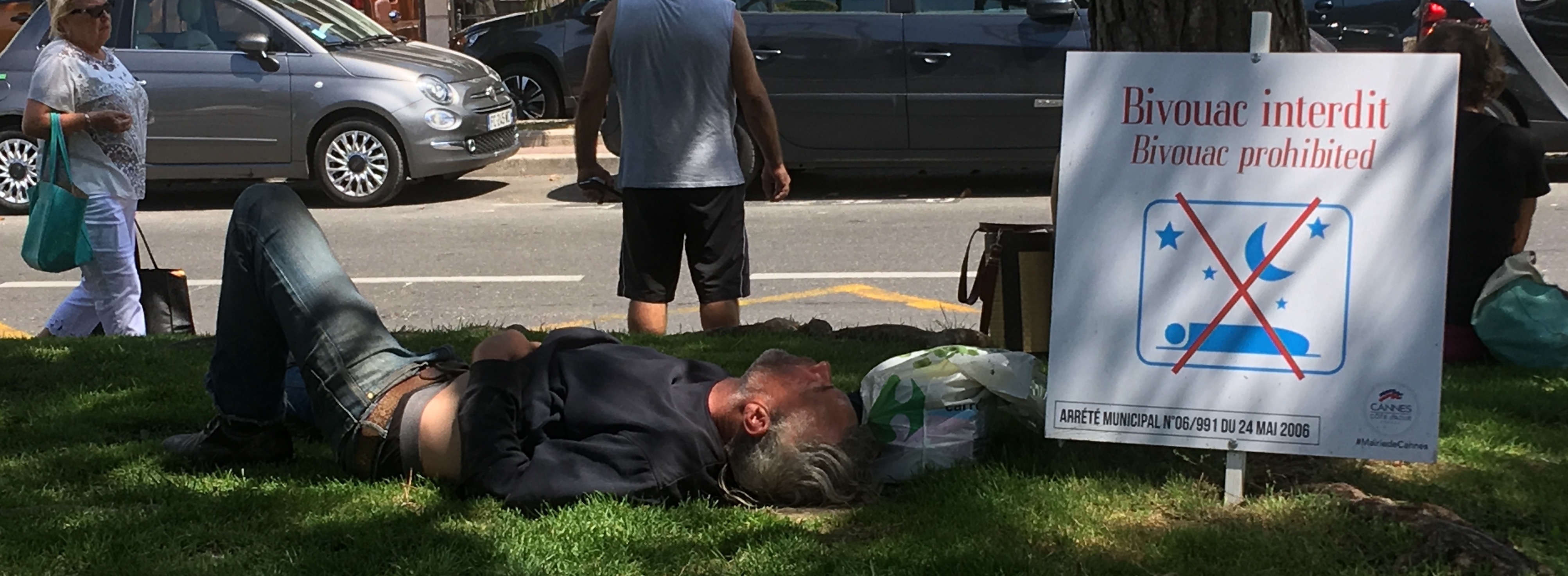
Please note! Course description is confirmed for two academic years, which means that in general, e.g. Learning outcomes, assessment methods and key content stays unchanged. However, via course syllabus, it is possible to specify or change the course execution in each realization of the course, such as how the contact sessions are organized, assessment methods weighted or materials used.
LEARNING OUTCOMES
To create a safe space for dialogue * to work together * to challenge preconceived ideas about what is PUBLIC and PRIVATE * to question the nature of urban public space * to be able to justify the many ways public space can be designed and managed to empower communities * to improve your presentation and writing skills
Credits: 3
Schedule: 03.03.2021 - 07.04.2021
Teacher in charge (valid 01.08.2020-31.07.2022): Michail Galanakis, Maria Villa Largacha
Teacher in charge (applies in this implementation): Michail Galanakis, Maria Villa Largacha
Contact information for the course (valid 06.02.2021-21.12.2112):
michail.galanakis@aalto.fi
050 472 0765 (workdays 10:00-16:00)
CEFR level (applies in this implementation):
Language of instruction and studies (valid 01.08.2020-31.07.2022):
Teaching language: English
Languages of study attainment: English
CONTENT, ASSESSMENT AND WORKLOAD
Content
Valid 01.08.2020-31.07.2022:
Sessions will address the following topics: the dichotomy between Public and Private * socio-spatial exclusions such as ableism, sexism and heterosexism, racism, chauvinism, and more * public space and diversity * public space and community * urban experiments * privatization * commercialization* Internet vs corporeal public space * activism * students’ suggestions are warmly welcome.
Applies in this implementation:
For this course the main requirement of prior learning is critical reflection and deliberation. You should know how to "read", analyse, and reflect on articles/media/presentations. You should know the basic principles of academic writing (e.g. how to refer to sources, the difference between reliable and unreliable sources, the meaning of plagiarism, etc.). You should be able to write well enough, and verbally express yourselves in English.
Assessment Methods and Criteria
Valid 01.08.2020-31.07.2022:
10% - Classroom participation: 10% - Classroom presentations: 20% - Weekly commentaries: 40% - Assignment: 20%
Applies in this implementation:
The "Classroom participation" refers to your willingness as an individual academic citizen to discuss the issues at hand live during the course sessions.
The "tutorials" refer to the flipped classroom technique according to which students freely plan and realise a brief tutorial session (20 min.) on an agreed topic. Basically, students teach the rest of us about something relevant to the weekly topic of the course. The tutorials will include the readers and other material you find relevant. The classroom tutorials are group work and will be singly blind peer-reviewed.
The "Weekly commentaries" refer to brief academic reflections on the reader of every session. Basically, a commentary is a text within which you very briefly outline the reader (an article and/or a video) and you present a reflection about the key point(s) of the reader. Within the reflection you are expected to present a mini-argumentation and use an example from your own experience. Mini-argumentation refers to the formulation of argument-counterargument and demonstrates your critical thinking. Your commentaries may include illustrations, and should include a minimum of two references to scholarly work. After consultation you may submit half of the expected commentaries in formats other than written texts. Commentaries are individual assignments. However, in general, I encourage you to study together. The maximum total characters count per commentary is: 3500 (approx. one A4). The commentaries will be evaluated through double blind peer review based on this criteria:
- relevance
to the reader and references - structure and flow
- argumentation
(argument-counterargument and example) - clarity of language and argumentation
* If one misses a course session is still required to submit the weekly commentary even with a delay.
** Students involved in tutorials are exempted from the commentaries of the corresponding sessions.
The "Assignment" refers to the peer review process in which each one of you will need to invest time to think and grade your peers' classroom tutorials, and weekly individual commentaries. Under the supervision of the instructor, students, will be responsible of the fairness of their assessment.
- relevance
Workload
Valid 01.08.2020-31.07.2022:
Teaching: 18h. - Individual work & Reflection: 50+10h. - Group work: 24h. – Individual, or group assignment: 38h. - Course attendance: 80% obligatory
Applies in this implementation:
In this course there are six (6) sessions of three (3) hours each. Therefore, there will be 18 hours of online contact teaching. For obtaining the 3 study credits a student needs to participate in 5 out of the 6 sessions. Attendance will be checked.
Three (3) study credits mean 3x27h= 81 hours of total student course work including the 18 hours of contact teaching. Therefore, for your commentaries, tutorials, and peer assessment, you need to each dedicate 63 hours. Roughly speaking this means 10,5 hours per week.
DETAILS
Study Material
Valid 01.08.2020-31.07.2022:
Academic, peer-reviewed articles - videos - photographic material
Applies in this implementation:
The Study Material will consist of a weekly reader. The reader consists of academic articles, or book chapters. In addition, there may be a video, or a press article.
The tutorials will be group work and will require close collaboration, negotiating the division of labor, etc. The aim is for each student to participate in two (2) tutorials.
Prerequisites
Valid 01.08.2020-31.07.2022:
None
SDG: Sustainable Development Goals
1 No Poverty
3 Good Health and Well-being
4 Quality Education
6 Clean Water and Sanitation
7 Affordable and Clean Energy
8 Decent Work and Economic Growth
10 Reduced Inequality
11 Sustainable Cities and Communities
12 Responsible Production and Consumption
17 Partnerships for the Goals
FURTHER INFORMATION
Details on the schedule
Applies in this implementation:
Every Wednesday in weeks no. 9, 10, 11, 12, 13, and 14, starting at 15:15 and ending at 18:00. In cases of cancellation of teaching sessions due to illness or other emergency, students will be notified in advance.
